' ' '
Artist Spotlight: Mr. Brown and His Students
“I’m new to JBHS, and I’m proud that my students were able to produce three short films that I felt had the quality needed to enter into festivals.”
For this spotlight, we have a special case. As submissions began rolling in for the student awards, our review team noticed that three of the projects traced back to the same teacher. Intrigued; we reached out and invited Mr. Brown and three of his students at JBHS to join us for a conversation.
Mr. Brown
Tell us a little about yourself, growing up and your passions.
I feel fortunate to have realized my childhood dream of working in the entertainment field. For over two decades I was employed in various roles on the distribution side of the film industry.
Growing up watching movies gave me a look into wonderful and exciting worlds. After graduating from Columbia College in Hollywood, I started working my way up the entertainment ladder. I was an office production assistant, receptionist, personal assistant, and an associate producer all before landing at Director of Distribution Services for several small production companies. I learned a great deal about the business side of the film industry and how to deal with the sometimes-prickly personalities of artistic types. I learned if I didn’t know the answer, I better figure it out fast, and how to survive in the twenty-hour, six day a week production world.
For years I provided advice, mentorship, and technical skills training on an informal basis to others interested in a career in the entertainment field. A few years ago, I realized I was enjoying this “teaching” work, so I decided to transition to a full-time career in Career and Technical Education (CTE). I enjoy being an evangelist for careers within the entertainment field because my career in the film industry was so exciting and rewarding.
Did you have any specific influences growing up that lead you towards the film industry?
Growing up I was influenced by the B movies of Roger Corman, William Castle, and Godzilla movies. Small budget, high concept were the types of films I wanted to make. Years later while in college I watched as Smith, Rodriguez, and Tarantino added highly stylized dialogue to that low budget concept with great success. The “do whatever it takes to make it work” attitude is what I try to instill in my students.
In your own career, what project or accomplishment are you most proud of?
It was when I went into teaching that I found something I could be proud of. Being able to bring my industry knowledge to young students to help them streamline their future education into the right fields has been great. Coming into JBHS I knew that they had a prestigious video production program through CTE. Being in Burbank surrounded by the studios I knew there would be a lot of talented students whose parents work in the industry. I really wanted to build on what JBHS already had and focus on festivals. If the students need to do a project to learn, it makes sense for them to spend a little bit more time and do a quality project that could be entered into a festival. I’m new to JBHS, and I’m proud that my students were able to produce three short films that I felt had the quality needed to enter into festivals. I’m hoping that we can get a few wins, or honorable mentions to show future students that it is possible to get recognition for a student film.
What are you currently working on?
I’m currently starting my master’s in film and Media Studies from ASU in the hopes of teaching some college level classes in the future. I am also in the preliminary stages of working on a short film with my friend’s independent film company.
What were your main focuses that you want to develop in your students?
I really want them to develop a “just do it” attitude going forward. The willingness to go out and work on a film just to gain experience and possible contacts. Too many students these days are only looking for a grade or some kind of acknowledgment for just doing their work. They don’t seem to understand how important sweat equity is, especially when you are talking about film and the entertainment industry. Where you are judged more on what you can show you have done and accomplished.
What makes a film interesting for you? What are three qualities that you look for in a movie?
Qualities that make a film interesting to me is the story and the characters. If you don’t have them down, it’s really hard to keep the audience engaged enough to keep watching. Next would be the shots and pacing of the film. You don’t need a big budget to move the camera or do another angle. It’s little things like that, which will bring a level of professionalism to a film. Last would-be production design and the look of the film. Know your budget and don’t try to make a great Sci-Fi epic with no money. Let the lack of a budget work for you and come up with creative ways to express your vision. Don’t green screen the whole thing.
What aspects in student projects make them stand out?
The student’s ability to pull off a level of professionalism. A good story, a decent level of acting along with a knowledge of shots and how to edit it all together. Most of my students turn in a film that consists of a couple of long shots that are staged like they shoot a play. When I start to see cutaways and quick edits, I start to get interested, and want to see where it’s going to go.
What sort of guidance do you give your students as they build their teams?
Work with people that you get along with but are also willing to challenge you when it comes to creating your film. A little conflict or push back can help spur the creative mind in new ways, resulting in a better film.
What advice would you give to someone who is aspiring to enter the film industry, especially as a film director?
I would want them to make sure this is something they want to do. It’s very hard to break into the entertainment industry, and unless they have the passion, drive, and a willingness to sacrifice for their career they may want to reconsider.
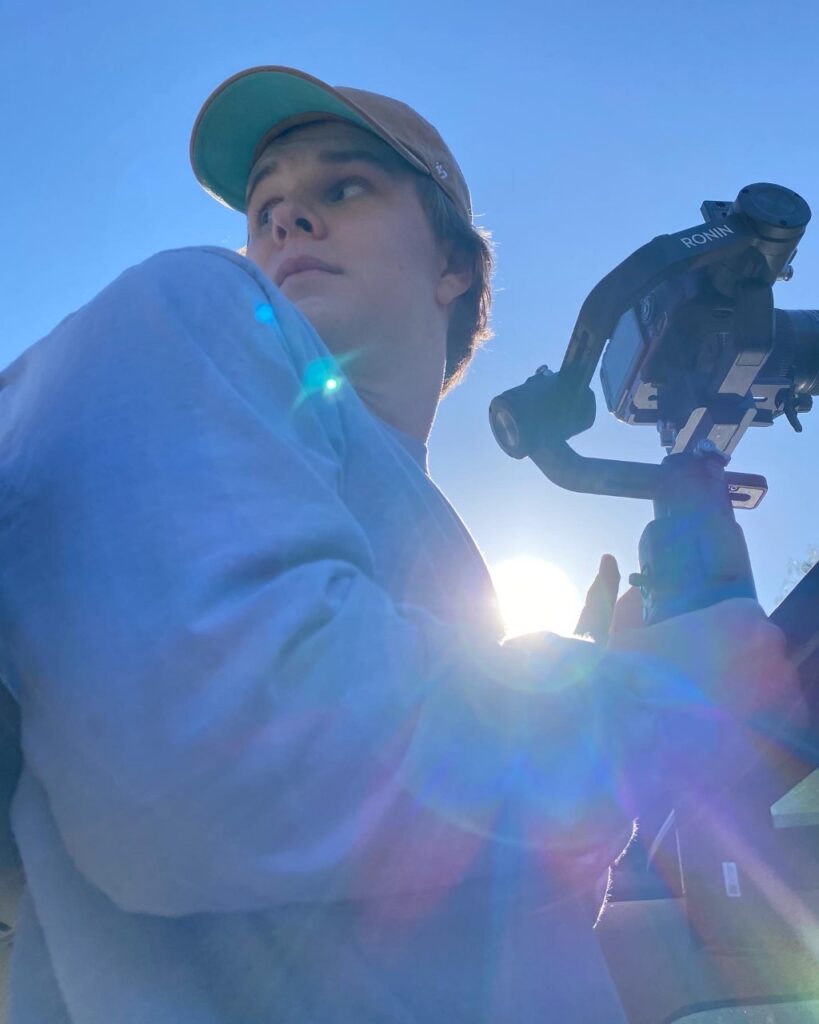

Harrison – ‘Hey Hun’
Tell us a little about yourself, growing up and your passions.
I was born in GA and raised in SC and lived there for most of my life. I started by getting into theater at the age of 9. I was on an international Broadway tour of Beauty and the Beast, and a national Broadway tour of Pippin. I then moved out to California to further pursue my acting career and transferred to on screen productions rather than stage. That’s when I found my love for being on set and working in the film industry.
What was the most important thing for this movie (your submitted project; ‘Hey Hun’) to achieve?
I wanted to challenge myself. With that, I created a film that had no dialogue (with the exception of the voiceover in the beginning). I did this because I really wanted to create a visual story. Something that guides the viewer through what the character is feeling without having to verbally express that emotion. It’s something that I find to be very impressive to master, where if you could just mute the movie, you could still follow along through the visual clues. This is something I find Steven Spielberg to excel at. With such examples of his being Raiders of the Lost Ark, Jurassic Park, and Jaws.
What criteria do you use when building your team?
Well, being in high school, I don’t quite have many options for building a proper production team. I mainly only use my friends. And there is absolutely nothing wrong with that. Since we’re all so close, I feel we can all just easily work together, bounce ideas off each other, and create a great final product.
What are your ambitions for your growing career in the film industry?
I plan on making the most out of my high school years with the resources that it has provided me to make films. I hope I can then go to film school for college. Then use my knowledge from there to make a living out of my passion. Which is much easier said than done.
How has Mr. Brown impacted you? What is the most important thing you have learned from him?
Mr. Brown gave absolute creative freedom for every project. He would teach us a technique/skill, then would encourage us to incorporate such into our work. With that, he set me and my group up on the path we needed to take and would practically let our imagination run wild from there.
Can you discuss any future projects or direction you are taking in regard to filmmaking?
I plan on creating more raw natural emotional stories. I want to create complex characters that really keeps the audience guessing… what that exact project is? Well, only time can tell.
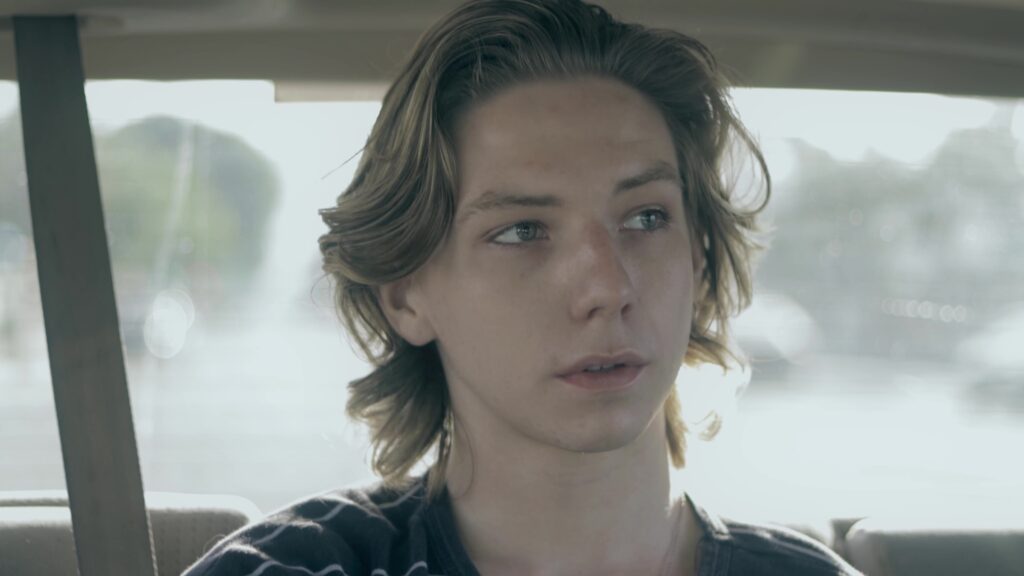
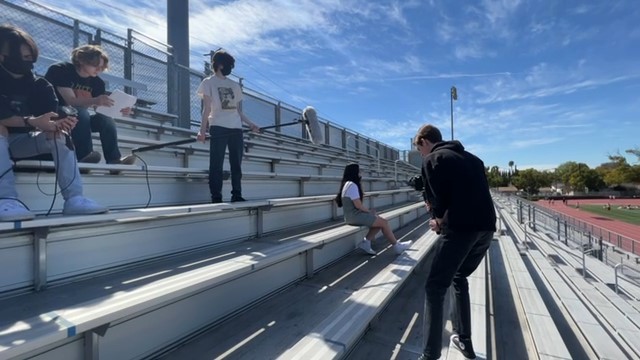
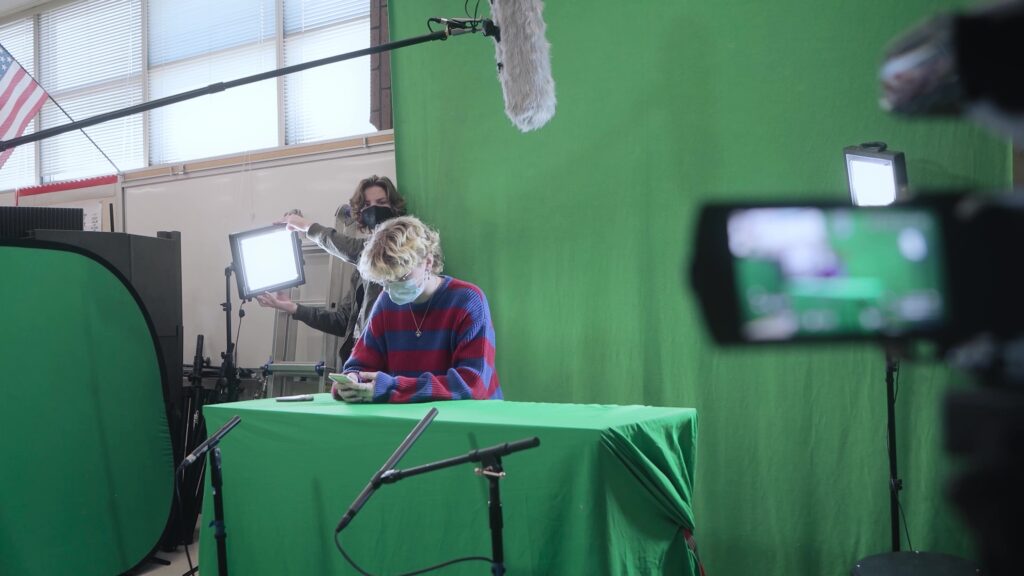
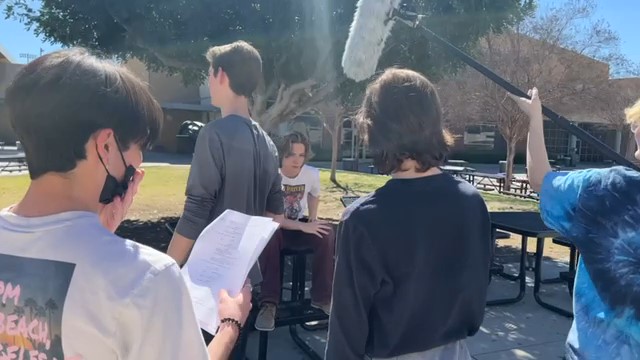
Maxwell – Stop the Spread
Tell us a little about yourself, growing up and your passions.
I’m a Junior here at JBHS, and my passions all center around various art forms. I am a music lover; I write/record music and play the guitar as well as various other instruments. My main passion, however, is certainly film. Growing up, I initially wanted to be an actor, which was reinforced by various film roles as I was growing up as well as studying drama every year here at JB. A couple years ago, however, after discovering some of my favorite directors, writing, directing, acting, editing, and composing for film became my absolute favorite passions.
Did you have any specific influences growing up that lead you towards the film industry?
Various writers and directors have influenced me as I’ve grown up. Quentin Tarantino and Martin Scorsese made me become fascinated with auteur cinema, which has led me to discover brilliant arthouse filmmakers and influential directors (Tarkovsky, Lars Von Trier, David Lynch, Gaspar Noe, etc.)
What was the most important thing for this movie (your submitted project; ‘Stop the Spread’) to achieve?
Going into this project, I wanted to be sure to incorporate an intertwining story with a gradual build to an epic climax. The main goal I had as a writer-director was to create a well-thought-out narrative without amateurish moments and with flashy cinematography. This film was meant to serve as an example for what I can do as a director from a technical standpoint. I am currently working on a smaller-scale dramatic short which intentionally maintains a Dogme-95-inspired cinematography style and is based solely on the characters and the performances, so I thought a higher-scale, technically ambitious film would be intriguing to attempt.
What makes a film interesting for you? What are three qualities that you look for in a movie?
Film provides a world wholly other than your own, which is what I suppose draws me to it. As of late, the most important quality in a movie (for me) is a voice (be it the writer’s or the director’s). When I watch a Danny Boyle movie, I expect energetic editing and experimental moments that suspend realism. My favorite directors are the ones who have an uncompromising style and vision. I believe that to make a successful film, you must
Have a voice
Be able to justify the film’s existence
Believe in what the project can become
What criteria do you use when building your team?
When building a team, I find reliability to be the most important aspect of each and every crew member. Working with the greatest actor or cinematographer of all time means nothing if they aren’t able to show up to set or deliver the product you need delivered.
What are you most proud of? Describe your biggest accomplishment to date?
I’d say that I am most proud of the screenplay for my feature film. Roughly a year ago, I wrote a 123-page screenplay which I plan to direct this summer and self-release on various platforms.
What are your ambitions for your growing career in the film industry?
In the film industry, I am determined to hold a writing and directing career. I have many stories I am ready to tell the world and have found a voice as a filmmaker that I would be foolish to ignore. I hope to study film (At Chapman University, fingers crossed) and then go on to pursue a career in the industry.
How has Mr. Brown impacted you? What is the most important thing you have learned from him?
Mr. Brown has demonstrated absolute faith in us as students. This semester, we’ve focused almost exclusively on our projects, and Mr. Brown has done everything in his power to help us achieve our visions for our pictures, offering hands-off and hands-on help if ever asked.
Do you have any upcoming projects that you’re super excited about?
I have two projects that are entering or already in the production process that I am beyond excited about:
Live For This – A Dogme-95 inspired dramatic short that comments on suicide, grief, and acceptance. With this project, I want to treat the subject matter as delicately as possible, shying away from using a score or “pretty” shots so as to not romanticize the subject matter like I’ve seen many other projects do.
Restless: Life by Moonlight – A surrealist/existential feature horror film following a teenager (Dally Dermas) who, due to intense nightmares, withholds from sleeping, gradually losing the ability to differentiate between reality and dreams as he slips into an otherworldly Lynchian dreamscape. This project is my big one, and I hope to fully bring to life the psychedelic, Suspiria (1977)-looking film with Charlie Kaufman-inspired existentialism
Can you discuss any future projects or direction you are taking in regard to filmmaking?
After the projects listed above, I have several other thought-out stories I would like to write and further develop. While studying film, I want to focus on creating a gallery of short films to explore who I am as a filmmaker and learn about my creative process. Once I’ve settled into life after high school, I want to continue the cyclic process of writing, directing, editing, and releasing content.
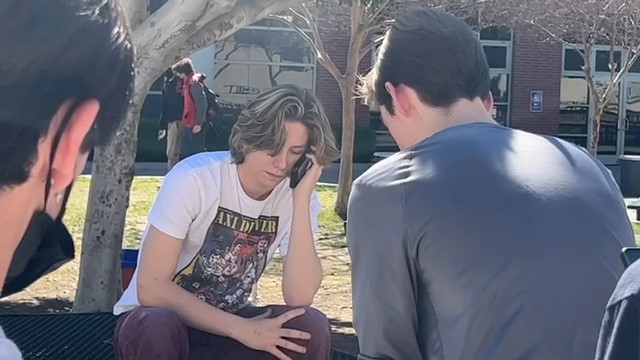
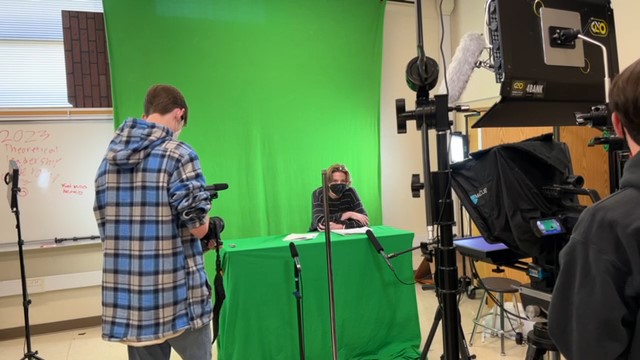
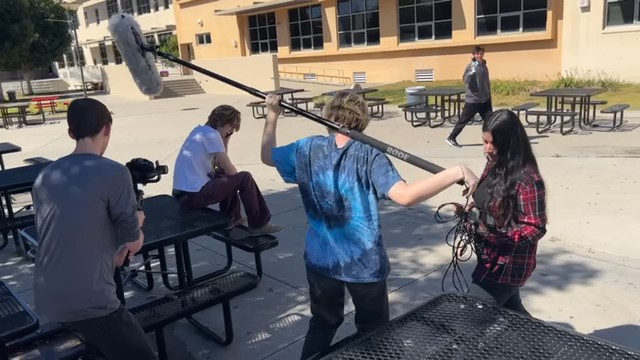
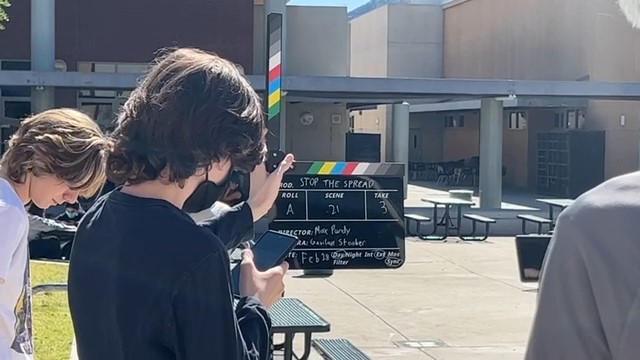
Logan – Action the Movie
Tell us a little about yourself, growing up and your passions.
I’ve always wanted to be in the film industry. I grew up as an actor, and I’ve been taking the same digital media classes in school since 6th grade. I also really like art and animation.
Did you have any specific influences growing up that lead you towards the film industry?
Well, being an actor since I was 6 years old probably contributed to it. I performed stunts for a while as well. My great grandfather used to work for television shows. So, you could imagine that filming and editing my first film, although it wasn’t good, was a really cool experience for me.
What was the most important thing for this movie (your submitted project; ‘Action The Movie’) to achieve?
Since we didn’t have the budget or time that, say, Marvel Studios has to make their movies, the next best thing was to play off of that and make a comedic, low budget action movie that makes people laugh, but still offers that touch of feeling like a real big budget action film.
What makes a film interesting for you? What are three qualities that you look for in a movie?
I prefer to watch movies that are comedic and/or visually pleasing. However, the one thing that I think can make a movie really good, no matter the genre, is how much it makes you feel an emotion. It doesn’t matter what the emotion is, as long as the movie makes you feel it strongly. It could be hatred for a villain, sadness for the loss of a character, or joy at the climax of the movie.
What criteria do you use when building your team?
I look for a little bit of everything personality-wise. People who can stay focused, people who can be funny, people who are productive, but not necessarily all of those things at the same time. I want people who can be straightforward and bring a valuable element to the project.
What are you most proud of? Describe your biggest accomplishment to date?
Oddly enough, I think my biggest accomplishment, although having nothing to do with film, was receiving my black belt in karate. That took me about five years to complete, and I’m going to keep trying and continue at it.
What are your ambitions for your growing career in the film industry?
Hopefully, one day I can make one really good movie that no one will forget. I don’t want to be a household name or anything, I just want at least one memorable achievement to make it all worth it, and I know that probably won’t happen for a very long time.
How has Mr. Brown impacted you? What is the most important thing you have learned from him?
He has really helped my group and I through the movie-making process, and I’m grateful for that. He let us have complete creative freedom and let us follow our own paths this semester, and I think that made things work better.
Do you have any upcoming projects that you’re super excited about?
Once the next school year comes around, I’m going to make a new project, that much is for certain. What it’s going to be, the genre, how long it will be, I don’t know, I just hope it’s something enjoyable.
Can you discuss any future projects or direction you are taking in regard to filmmaking?
I really don’t know yet. All I know is that I’m going to keep making films, and hopefully they’ll keep getting better as I learn and grow as time goes on.